|
-Brandon William Peach- Comfort, comfort my people! says your God. Speak compassionately to Jerusalem, and proclaim to her that her compulsory service has ended, that her penalty has been paid, that she has received from the Lord’s hand double for all her sins! Isaiah 40:1-2 CEB  When I was young, I watched Mr. Rogers every Sunday morning before church with my twin brother, countless episodes and songs and life lessons that stick with me today. I was profoundly saddened by his death. I would look for old videos of his Neighborhood on the internet when I was in college (more challenging in the days before YouTube). As an adult, I’ve come to appreciate him more and more. His fundamental personality trait—his gentleness—was, and is, something that I admire greatly. In 2012, when we heard the news of the horrible shooting in Newtown, CT, a Facebook image of him went viral along with a quote of his from years earlier: "When I was a boy and I would see scary things in the news, my mother would say to me, 'Look for the helpers. You will always find people who are helping. To this day, especially in times of 'disaster,' I remember my mother's words, and I am always comforted by realizing that there are still so many helpers -- so many caring people in this world." Gentleness, of course, was the input. Comfort was the result. Soothing a crying baby, petting a cat, treating a wound--all things meant to comfort--only work if gentleness is applied. The gentleness of Christ, of course, is on display when he offers a light burden and an easy yoke. God displayed His gentleness toward the children of Israel, who suffered tremendously during years of Babylonian captivity, through His prophet Isaiah. In the same chapter, God promises to give rest to the exhausted, to empower the weary, and promises His people would fly with wings like eagles [Isaiah 40:31]. Comforting words after such a long wait for some gentleness, indeed. We live a violent world still—one that seems to value being tough over being tender. Meek attitudes and gentle actions are seen as a weakness. But that couldn’t be further from the truth. The most powerful being in the universe could have used any method at all to crush darkness and Satan and sin—yet He chose to save His people by literally condescending and becoming a human child. There is then, in the fruit of gentleness, an amazing strength. Gentleness in a world such as ours goes a long way, as Mr. Rogers demonstrated. Our decision to be gentle even in times of fear and uncertainty allows us to share the heart of Christ, “the Father of mercies and God of all comfort.” [2 Corinthians 1:3] - - - Lord, thank you for Your gentleness toward me. Please give me the strength to be gentle today, no matter the circumstance.  Brandon William Peach is, first and foremost, the husband of Kathleen O'Neill and the father of William Sean O'Neill. He is a writer with a degree in literature from Penn State University, and a frequent contributor to various blogs, magazines, and podcasts. While his career is in marketing, Brandon's primary interests include historical Christianity, literature, art, and pacifism in practice. He lives in the heart of Amish Country in Central Pennsylvania, where "getting stuck in traffic" often means being stuck behind a horse and buggy on a windy backroad. His hobbies include reading, writing, watching good movies, cooking, and most importantly, spending time with his wife and son. He is owned by his cat Tiger and his dog Millie. -Rev Paul Appleby- Now the one who had received one valuable coin came and said, ‘Master, I knew that you are a hard man. You harvest grain where you haven’t sown. You gather crops where you haven’t spread seed. Matthew 25:24 CEB  The Scripture quoted above is from a teaching of Jesus commonly called "The Parable of the Talents." Now, as those history buffs among us are aware, a talent is a fairly large sum of money (the "valuable coin" in The Common English Bible- it would have weighed around 70 lbs and depending upon its composition could be worth upwards of $30,000). In this story, a master leaves town and gives three of his servants some of his riches to manage in his absence. The first two invest their talents and pay back their master with interest upon his return. The third… well, he (either out of fear or laziness) buried his talent then dug it up and returned it to his master upon his return. The English word "talent" comes from the name of this old coin, in fact it comes to us right out of this parable. A talent is a treasure that our master has entrusted to each of us. Just as is the case in the parable, some of us are given a lot of talents, some of us are given a few. The number and value of the talents is really beside the point. In fact, in the Scripture mentioned the use of the talents, the rewards doled out upon his fellow servants who used and developed their master's gifts, and the master's disapproval of this lazy, selfish, fearful servant aren't exactly in view. The issue in view is the servant's understanding of his master as the one who "harvest(s)… where (he has not) sown… gathers(s) where (he hasn't) spread seed." Quite an unconventional picture of God, no? Unconventional, perhaps, but is it true? The God of this parable is one who looks to us, God's servants, to see what creative and innovative ways we have found to use those talents with which we have been entrusted. This is a God who has given us not success, but simply the building blocks for it. This God is looking to make a name and a treasure for God's self from our creativity, our sweat, our struggle. This is a God looking for us to do the hard work of developing talents, and all to his credit. I don't know about you, but this certainly seems to ring true to my experience of God. It also holds true to the idea of God as a heavenly parent. I have been told by my parents, more than once, to live up to my family name. My parents provided me, not with success, but with the tools needed to build it- it is my hope that I am providing my children with the same. Because, as the servant in this story intuitively grasps, that is what the Christian is called to do. To develop his/her God given talents. To grow where they find themselves planted, and to offer up to God the increase. We are God's agents of growth, of prosperity, of beauty on this earth. We are called to be salt (an agent for growth to the ancient botanist) and light (an agent of illumination) - and one day, like the servants in this parable, we will be called to give an account of the talents we have been entrusted with. On that day, may we be found faithful. - - - Dear Lord, may the talents you have put in my care be carefully seeded to grow a plentiful harvest. Amen.  Rev Paul Appleby: Raised in the Church, the teachings of Jesus came alive to Paul in a new and exciting way after studying the Sermon on the Mount, and rediscovering the brilliant, simple, and profound way Jesus encourages his followers to live and love. Along with his amazing wife Sage, he serves a loving Christ-centered congregation in Killeen, Texas. -Brandon William Peach- Yes, goodness and faithful love will pursue me all the days of my life, and I will live in the Lord’s house as long as I live. Psalm 23:6 CEB  The Bible is full of references to God’s goodness. God is good to all [Psalm 145:9]. Everything He made is good [Genesis 1:31]. Only God is good. [Matthew 19:16]. In the last verse of the 23rd Psalm, we learn that God’s goodness pursues us for all the days of our lives—the sense of the Hebrew meaning that His goodness is on our heels wherever we go, that it’s following us doggedly. Goodness in this context feels like a very different type of goodness than we’re used to seeing or hearing about on a day-to-day basis. Think about the way we use the word “good.” When I pick up my son from his grandparents’ and I ask if he was “good,” I’m really asking whether he was bad. When I say food is “good,” I’m actually saying it was somewhere in the middle of the road; not awful or amazing, but appetizing enough that I’d probably eat it again. When my manager says “looks good” about some work that I’ve done, he’s affirming that I didn’t completely screw up. The point isn’t that we’re using the word “good” wrong on a daily basis, but rather, when we think of God’s goodness, we’ve got to recognize it for the superlative that it actually is. God’s goodness is referred to as omnibenevolence, infinitely loving and maximally good. So good that no other being could logically supersede it. That superlative goodness is chasing you every day of your life. No matter how badly your morning might be going, no matter what temptation you might have given into in a moment of weakness, no matter how hurried you are to get the next project out the door, the one constant is that God’s goodness and His love are actively pursuing you until the day that you get to be with Him forever. When we exhibit the fruit of goodness through the power of the Holy Spirit, we’re able to take an active role in transforming God’s creation. We can actively participate in the ushering in of His coming Kingdom. And by the grace of God, we can offer a lost world a glimpse of a good Father who has never, will never, stop pursuing them. - - - Lord, thank you for your goodness to me. In my pursuit of holiness, I ask that you would help me display your goodness to the world.  Brandon William Peach is, first and foremost, the husband of Kathleen O'Neill and the father of William Sean O'Neill. He is a writer with a degree in literature from Penn State University, and a frequent contributor to various blogs, magazines, and podcasts. While his career is in marketing, Brandon's primary interests include historical Christianity, literature, art, and pacifism in practice. He lives in the heart of Amish Country in Central Pennsylvania, where "getting stuck in traffic" often means being stuck behind a horse and buggy on a windy backroad. His hobbies include reading, writing, watching good movies, cooking, and most importantly, spending time with his wife and son. He is owned by his cat Tiger and his dog Millie. -Rev. Sarah Renfro- He said, "May you be blessed by the LORD, my daughter! You have acted even more faithfully than you did at first. You haven't gone after rich or poor young men. Ruth 3:10 CEB  Almost twenty years, comedian Chris Rock had a special that included a bit about those wanting credit for things they are “supposed to do.” Using plenty of expletives, Rock made fun of those who say, "I take care of my kids." Well, “You're supposed to…” he shouted on stage. The 1996 special is not for family viewing, but the essence of this statement is true. There are some things we are just “supposed to do.” We are supposed to take care of our family members. Naomi was trying to take care of her daughters-in-law when she told them to go back to their mothers after their husbands died. That was caring and kind. And expected at that time and in light of a famine. It was not unkind that Orpah said good-bye, but Ruth would not leave her mother-in-law. A foreigner in her MIL’s homeland, Ruth provided for her family of two, and in turn, Naomi made sure that Ruth would be taken care of in the future. Boaz had shown kindness to Ruth by letting her glean from his fields of grain. And he thought Ruth was kind for taking care of her MIL and by proposing marriage to him, an older relative. He would do what he was supposed to do, by marrying a relative in need, and he praises Ruth as one who exhibits hesed, loving kindness, loyalty, faithfulness. In Ruth’s eyes, however, she is just doing what she is supposed to do, as a devoted daughter-in-law and child of God. She embodies the hesed of God, who also “takes care of [Her] kids” because that’s what God is “supposed to do.” God doesn’t brag or boast or ask for a special blessing, and neither does Ruth. Ruth is praised for going beyond mere niceties. Hesed may be displayed by human and Divine, and it does not discriminate. Ruth was, after all, a foreign widow. God demonstrates divine care for all who seek refuge. Who in our world needs hesed? How can we practice loving kindness? Aren’t we called to take care of our family of faith (brothers, sisters, aunts and uncles in Christ), just as God takes care of us? Isn’t that what we are supposed to do? - - - God of hesed, encourage us to practice loving kindness, loyalty, and faithfulness, beyond borders and boundaries, not just because we are related by blood or marriage, but because we are “supposed to” as members of Your family. Amen.  Rev Sarah Renfro is the Pastor of Family Ministries at Geist Christian Church (Disciples of Christ) in Fishers, Indiana. Born and raised in Lexington, Kentucky, Sarah formerly modeled internationally, was ordained into ministry in 2010, is married to Rev. Kyle Brown, mother to Miriam, March Madness fanatic (Go Big Blue!), and writer at m-bodied.com. Her ministry includes leading body image workshops and preaching on embodiment and faith. -Rev Evan Dolive- Hotheads stir up conflict, but patient people calm down strife. Proverbs 15:18 CEB  I can’t stand the cliché, “patience is a virtue.” It just rubs me the wrong way. Maybe it is because there are times when I am not the most patience person in the world. I have been working on it, but there are sometimes when I fail miserably. I can be a loud mouth, a hot head and an overly opinionated person. On some levels I can’t help it or at least that’s what I tell myself; I find ways for the wrong doing to be someone else’s fault or I rationalize why whatever I said was in fact the truth and they needed to hear or that the hearer was just over reacting. Words are important; the words we say and more importantly how we say them are of even more significance. Patience is a skill that has to be crafted and often times re learned and that’s why its so hard. We actually have to work at it. Patience is not just something we remind ourselves to have when we on the verge of road rage but it is a key element in the Lenten journey. In our society the concept of waiting or pausing or even inhaling is becoming a thing of the past. We want things and we want them fast. We want out internet to be blazing, we complain when it takes 10 seconds to download a song or a picture. Cell phone companies market their phones to show how a person can get things done faster or applications load faster than the competition. Lent is not just a call to center our thoughts and minds on the life of Christ and the journey to the cross rather is one a deliberate patience. We want to get to the happy day of Easter but we don’t want to have to do the long way around to get there. There is something that we will miss if we do not take the time to journey with Christ in the Lenten season. Take it from a fallible person who is continually working on patience, its not the easiest thing in the world, but I believe waiting for Easter will make that fateful day just that much more special. - - - O God help me to be more patient in my daily life. Grant me the strength and wisdom to slow down and breathe you in. Calm my soul as I wait for your realm to come. In Christ’s holy name, Amen.  Rev Evan M. Dolive is an ordained minister in the Christian Church (Disciples of Christ). He currently serves as the Associate Minister for Family Life at First Christian Church (Disciples of Christ) in Longview, Texas. He is the author of "Seeking Imperfection: Body Image, Marketing and God," a theological examination of marketing and body images propagated in the world today and the Christian response. He also writes for various online publications and at evandolive.com He is currently working on his Doctorate at Brite Divinity School at Texas Christian University in Fort Worth, TX. He is married to his high school sweetheart and has three children ages 6,4 and 2. -Rev Melissa Fain- “Happy are people who make peace, because they will be called God’s children.” Matthew 5:9 CEB  Advent is… what? This is Lent? I shouldn’t talk about Advent during Lent? Phooey! Everything is connected. Life is one big tapestry, and a thread used in one part of the image comes back again in strange ways. Getting back to my point, Advent is the four Sundays before Christmas. It is made up of four Sundays in a very specific order: Hope, Peace, Joy, and Love. This isn’t an order that just works during this pre-Christmas time of year. It’s an order that is true for the whole year. Hope is like picking a destination. We set sail towards something. As Christians I hope your hope is set on Christ. Peace is packing your bags and starting the journey. The thing about finding peace is that it takes work. Peace is order when the world is drawn to chaos. Peace is sometimes blood sweat and tears. Hope always comes before peace because you have to set a destination in order to travel towards it. You have to set your hope before you can travel towards peace. It is when we know where we’re headed, and we are actually headed there, joy bubbles up. So, yes, happy are people who make peace. Happiness is the natural result of peace. These three attributes often connected to Advent leads naturally into love. When one finds love, that’s where we find God. That’s something to truly be joyous about! - - - Holy Father, We praise and adore you! Thank you for the gifts you bestow upon us! Amen.  Rev Melissa Fain is an ordained minister in the Christian Church (Disciples of Christ.) She currently serves as the Senior Minister at Fig Tree Christian. Her passion is new church planting and revitalization. Fig Tree is the second big church plant she has been part of. Melissa enjoys all forms of the arts, having a degree in vocal music from Kennesaw State University. She also graduated from Candler School of Theology in the Fall of 2010, and has worked in Christian settings since 1999. Melissa is a mother of two wonderful children, and the wife to a very talented illustrator. 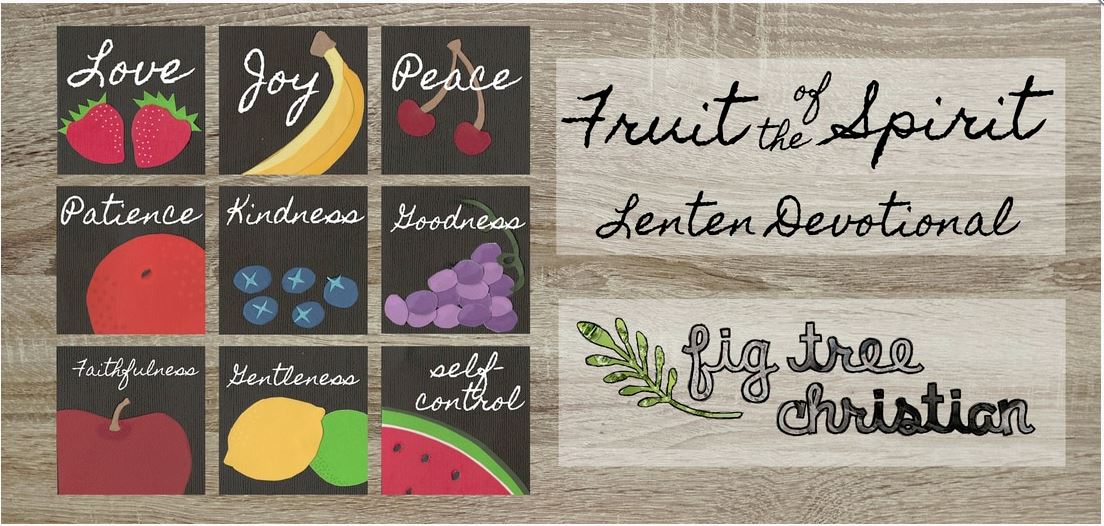 -Mike Miles- I have a lot to tell you. I don’t want to use paper and ink, but I hope to visit you and talk with you face-to-face, so that our joy can be complete. 2 John 1:12 (CEB)  Many of whom I consider to be my closest friends live very far from me. I live in Michigan and they all live in Texas. As such, these days most of our keeping up with each other is done online over Facebook or Skype. Occasionally, we might even call one another! While these alternative modes of communication have been a great blessing to me, there is still nothing quite like meeting up in person. Every couple of years, my friends and I will decide upon a destination halfway between us and travel there together for a reunion trip. Over the course of the weekend together, we will laugh and smile as we reminisce, sharing stories and making new ones. All of this is done with great joy. In John the Evangelist’s very short letter that we know as Second John, we see something very similar to what I just described. Whomever the woman is that he is writing to, John has a very close relationship to her and cannot wait to see her in person once more. There is much more to tell her beyond that thirteen verses of this letter contain, but pen and paper just isn’t enough. He wants to see her face to face. In doing so, their “joy can be complete.” Any reader can see that this letter reflects great joy in its words, but it is nowhere near the levels of joy seen in the immediate personal interaction between these two people. Why is that? Much has been written and discussed about joy, especially in its relation to happiness. What’s the difference between the two? Without going into great detail, I offer a simple supposition: joy does not come from within. Joy comes from other people. I can make myself happy in many different ways, from eating a cookie to watching a favorite movie. However, I cannot give myself joy. Joy is a gift from God that His Spirit bestows upon us in the company of our fellow people. Joy is a fruit of the Holy Spirit. I will confess that I have most often thought of this spiritual attribute in the context of receiving it. However, I believe that the Holy Spirit is also made manifest in the giving of joy as well. I know many people in my life who are very good at this and the simple act of seeing them walk into the room with a smile on their face brings joy to everyone in the room. Perhaps, though, it is the work of these two in tandem—both the receiving and giving of joy—that are at the heart of what the Spirit provides for us. Is it any wonder that God calls his people to assemble? I experience great joy on a Sunday morning. It isn’t from the songs we sing (though I often do love them.) It’s not from the sermon, though I do enjoy both listening to our pulpit minister as well as preaching myself. Joy is in the interactions with my fellow brothers and sisters in Christ. Joy is in the breaking bread together. Joy is not in the words or music of a song, but in the united voices joining together. Joy is in the little children being cared for by the elderly widows sitting next to them in the pew. Joy is in the love of God that is present when His people are together face to face. Wherever you are, whomever you are with, you have an opportunity to be a beacon of joy to another person. May God’s Spirit be at work in you to bless others with your presence. - - - We pray to you, our Fount of Joy. We thank you for every cherished moment we have with one another, knowing that you are present there, too. Help us to be joyful and to spread Your joy to those around us in our words and in our actions. Amen.  Mike Miles is the student and family minister at the Livonia Church of Christ in the western suburbs of Detroit, Michigan. He attended Abilene Christian University, where he obtained his Bachelor of Arts in Christian Ministry in 2009. Mike is currently working on his Master of Religious Education in Missional Leadership at Rochester College in Rochester, Michigan. Mike has a love for community and for bringing people together, especially across society's dividing lines. Born in the Philippines, he has since lived in over twenty different places but happily calls Michigan "home." He is unashamedly nerdy. He has tried to maintain a blog for years, but has decided that he is just too lazy. He is married to Blythe and has a son, with a baby girl on her way in early 2017! -Rev Rebecca Yowler- “You have heard that it was said, You must love your neighbor and hate your enemy. But I say to you, love your enemies and pray for those who harass you so that you will be acting as children of your Father who is in heaven. He makes the sun rise on both the evil and the good and sends rain on both the righteous and the unrighteous. If you love only those who love you, what reward do you have? Don’t even the tax collectors do the same? And if you greet only your brothers and sisters, what more are you doing? Don’t even the Gentiles do the same? Therefore, just as your heavenly Father is complete in showing love to everyone, so also you must be complete. Mathew 5:43-48 CEB  I do NOT love my neighbor. Not “my neighbor” as in the global sense, or as in loving all of humanity. I mean the person who lives next door to me right now. I do not love her. I don’t even like her. I border on feelings of hate, anger, and complete abhorrence of her, to be quite honest. I’m not usually a hateful person— I tend to look for the good in everyone and find the essence of the divine in them. But not this woman. She has been a thorn in my side since my wife moved into the house we now share. She’s called our landlord to complain (we don’t share the same landlord), she sabotaged our wedding reception, she even bought an extra-loud speaker to blast at our house in an admitted attempt to run us out of the neighborhood. But none of these things is the reasons I don’t like her. I really don’t like her because of the way she treats her elderly dog. This poor dog is forced to live outside 24/7 regardless of how hot it gets (over 100) or how cold it gets (sometimes below freezing). His fur is matted to his body, and we can hear him crying in pain. I don’t even understand the level of cruelty this poor dog endures. So there, I said it. I don’t like my dog abusing, stereo blasting, wedding reception sabotaging neighbor. And I’m sorry for it. Truly and deeply sorry. We’ve tried conversation. We’ve tried being nice. We’ve tried ignoring her. We’ve never stooped to any level of retribution. We’ve “turned the other cheek.” But we don’t love her and we certainly don’t pray for her. For her dog? Yes. For her? NO. Until today. Today, this scripture reminds me that I am called to love my neighbor, not just in the global sense, but even in the sense of the woman next door. I am called to love her, pray for her, and ask God to give her good things. This scripture reminds us that love means looking past all of the reasons we hate someone. This is difficult. I mean this is REALLY difficult. What does this kind of radical love even look like? How can you love a neighbor that won’t even make eye contact? How can you love a neighbor during a 3am heavy metal blasting session? How can you love a neighbor that abuses an animal? I don’t know, but I’m going to try harder. Is there a neighbor you don’t love? Maybe they don’t live right next door, but is there someone in your life that you don’t love? Even if you have a good reason, what would loving them anyway look like? Are you willing to try harder? - - - God, please remind me that loving my neighbor includes the one that lives next door (or down the street, or across town). Please help me to be a better neighbor and a more loving neighbor. Help me to learn to love even those who are hardest to love, and if I can’t love them, help me to at least be nicer. Amen.  Rev Rebecca Ann Yowler is an ordained Disciples minister and an academic librarian. She is currently adjunct faculty at Valparaiso University. She is passionate about pugs, knitting, and figure skating. You can read her occasional sermons and devotions at www.beccassermons.livejournal.com -Brandon William Peach- Jesus returned from the Jordan River full of the Holy Spirit, and was led by the Spirit into the wilderness. There he was tempted for forty days by the devil. He ate nothing during those days and afterward Jesus was starving. The devil said to him, “Since you are God’s Son, command this stone to become a loaf of bread.” Jesus replied, “It’s written, People won’t live only by bread.” Next the devil led him to a high place and showed him in a single instant all the kingdoms of the world. The devil said, “I will give you this whole domain and the glory of all these kingdoms. It’s been entrusted to me and I can give it to anyone I want. Therefore, if you will worship me, it will all be yours.” Jesus answered, “It’s written, You will worship the Lord your God and serve only him.” The devil brought him into Jerusalem and stood him at the highest point of the temple. He said to him, “Since you are God’s Son, throw yourself down from here; for it’s written: He will command his angels concerning you, to protect you and they will take you up in their hands so that you won’t hit your foot on a stone.” Jesus answered, “It’s been said, Don’t test the Lord your God. ”After finishing every temptation, the devil departed from him until the next opportunity. Luke 4:1-13 CEB  Self-control may be the most difficult of the virtues expressed in the Fruits of the Spirit. Since the Fall of Adam, our natural proclivity is to give in to temptation, not to resist it. It exists in decisions we make in our everyday lives. Refuse self-control enough, and you begin to develop patterns: one more drink, one more episode, one more slice. The patterns turn into addictions. They become idols. Why is self-control so difficult? In part, because temptation hits us at our personal weaknesses. When we give in to temptation, we’re “scratching an itch” that’s unique to our desires. When we begin to address one area of temptation with self-control, it’s often not long before we give into another. This business of sanctification, it’s a lifelong process—a process that requires self-control. When Christ was led into the wilderness by the Holy Spirit, He was confronted by the Tempter who tormented Him mercilessly over forty hungry days. We’re not told the details of those forty days, but we know that He was tempted in every possible way [Hebrews 4:15]. The final three temptations exploited his weakened state ruthlessly, yet He displays self-control of a degree we cannot imagine, using the words of Scripture to combat His attacker. The story of Christ in the wilderness is rich with lessons, but in the context of self-control, there's a striking parallel made between the first Adam and Christ, the "Last Adam." [1 Corinthians 14:15]. Sin nature came through Adam. Self-control nature came through Christ. With Christ as not just the example of self control, but also the source of it, we have the power to overcome temptation and avoid sin. “Self-control” therefore is not about controlling our selves, despite how the term may sound. Christ’s example in the wilderness and His finished work on the cross allows us to give the control of ourselves to Him. As we determine to do so, and as we begin to hone this virtue, our desires begin to conform to His and the temptations of the flesh—our areas of weakness that the Enemy takes advantage of—become weaker and weaker. - - - Lord, help me develop self-control. Purify my desires and bring my will into alignment with Yours. Amen.  Brandon William Peach is, first and foremost, the husband of Kathleen O'Neill and the father of William Sean O'Neill. He is a writer with a degree in literature from Penn State University, and a frequent contributor to various blogs, magazines, and podcasts. While his career is in marketing, Brandon's primary interests include historical Christianity, literature, art, and pacifism in practice. He lives in the heart of Amish Country in Central Pennsylvania, where "getting stuck in traffic" often means being stuck behind a horse and buggy on a windy backroad. His hobbies include reading, writing, watching good movies, cooking, and most importantly, spending time with his wife and son. He is owned by his cat Tiger and his dog Millie. |
Categories
All
Archives
October 2023
|


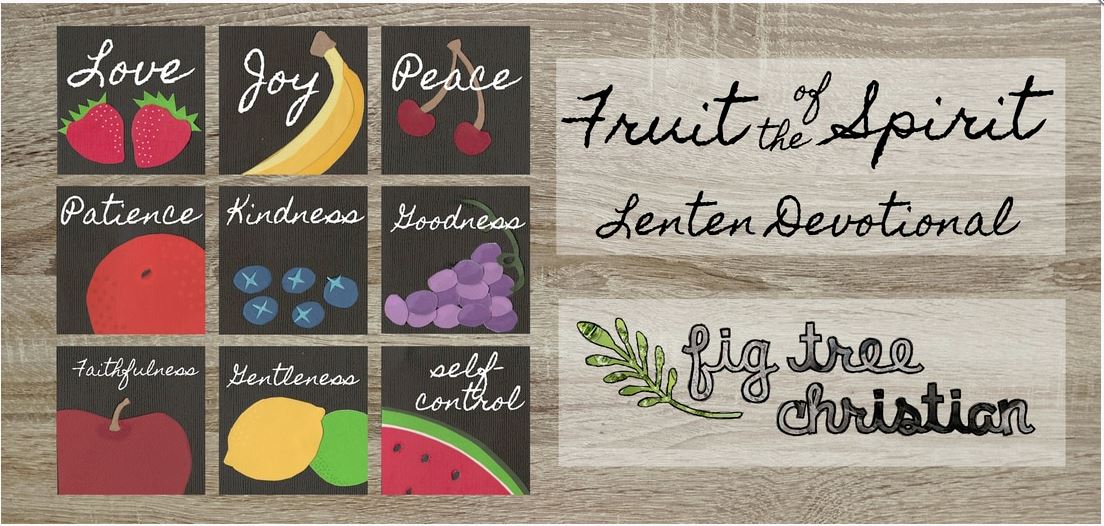
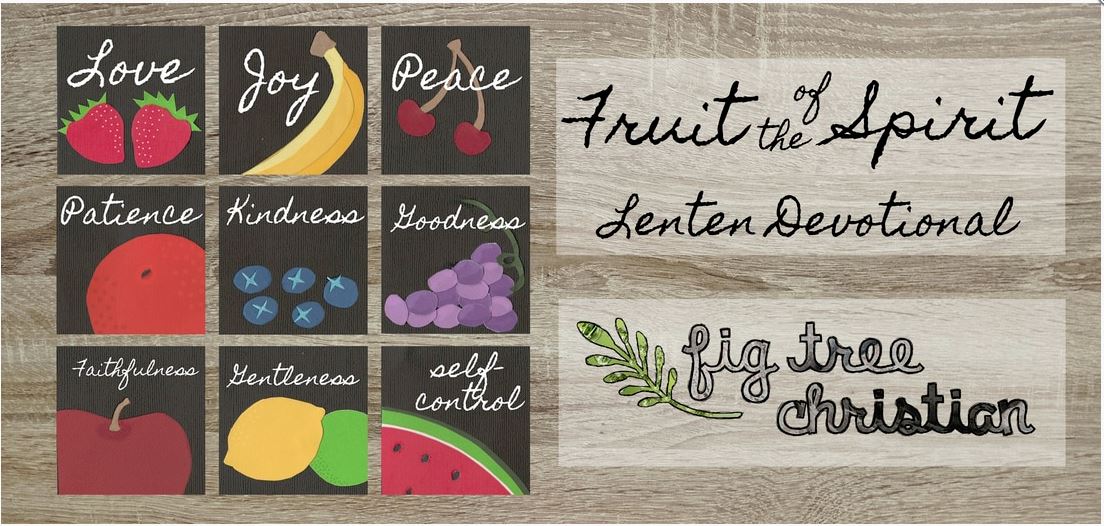
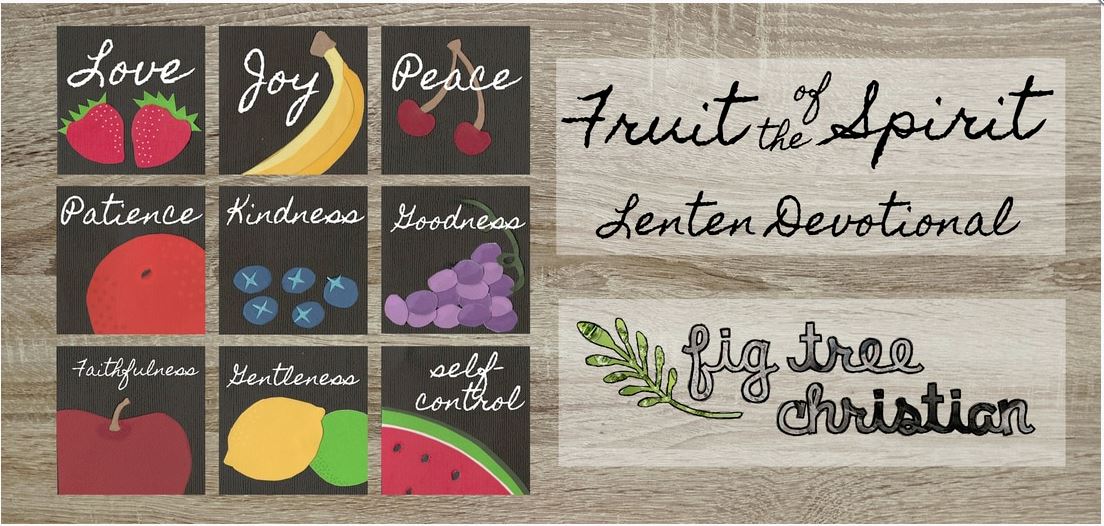
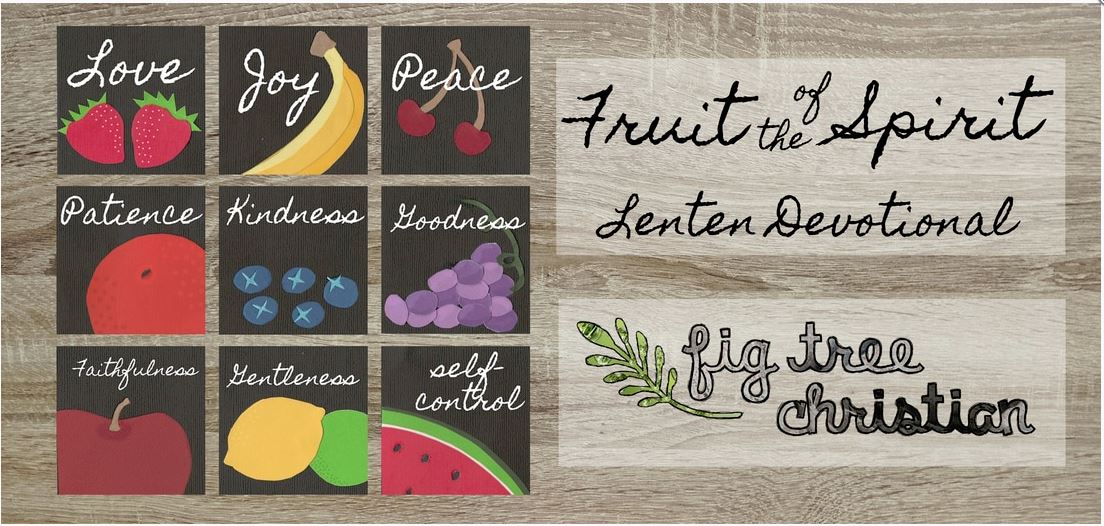
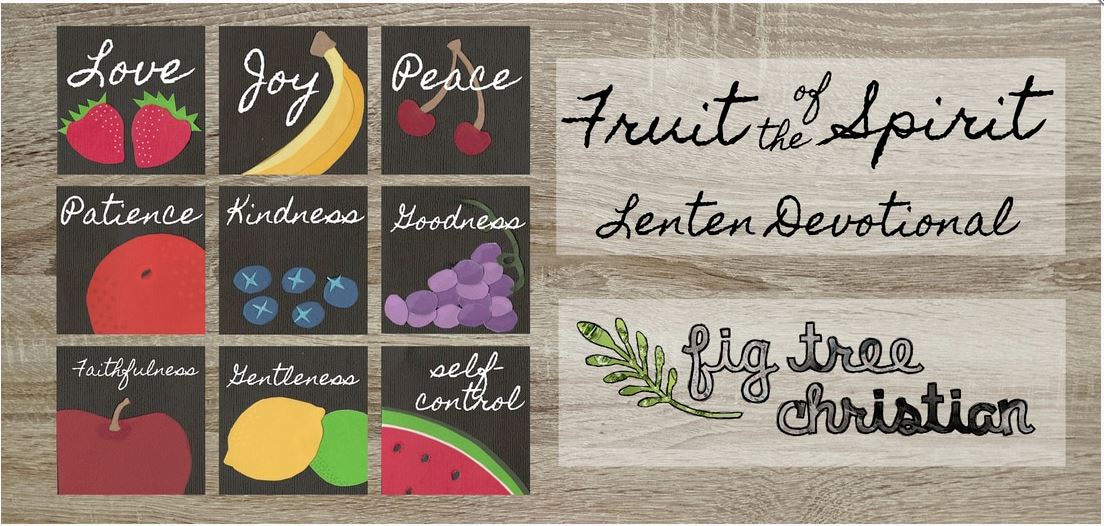

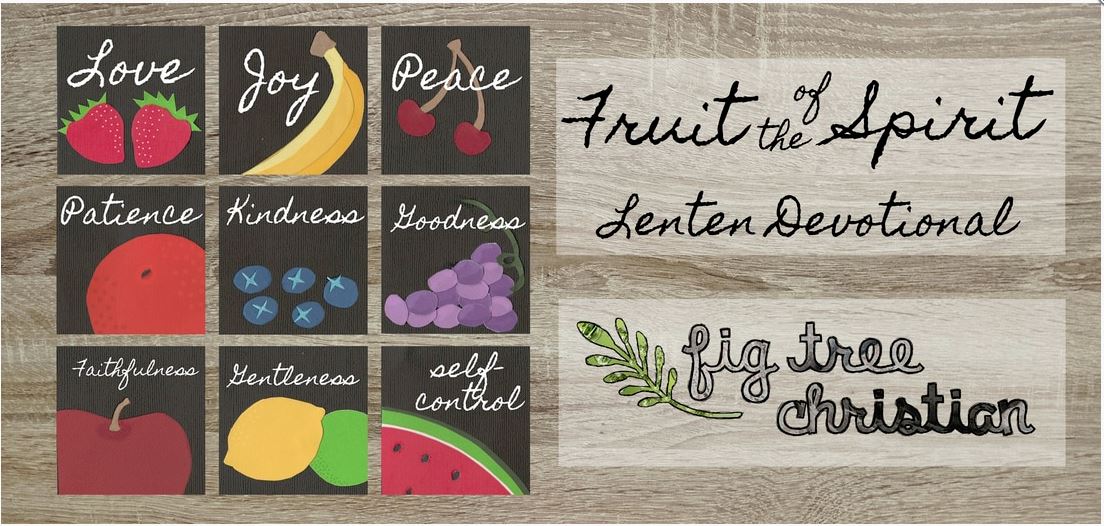
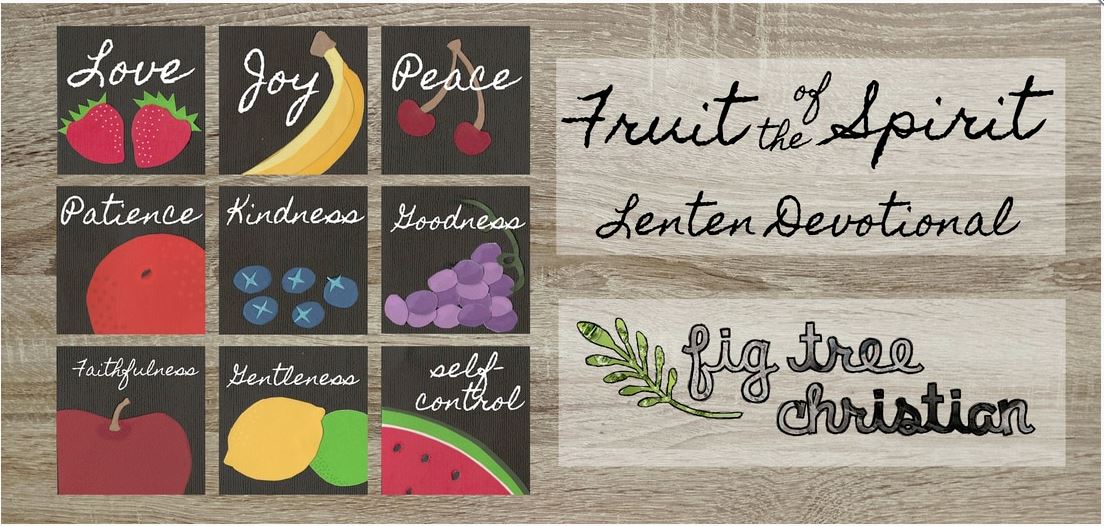
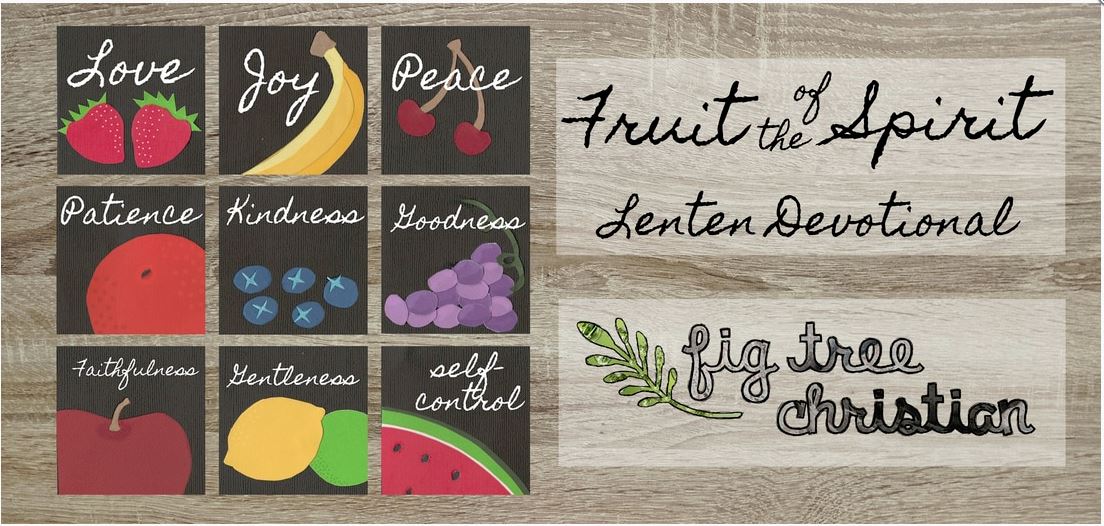

 RSS Feed
RSS Feed